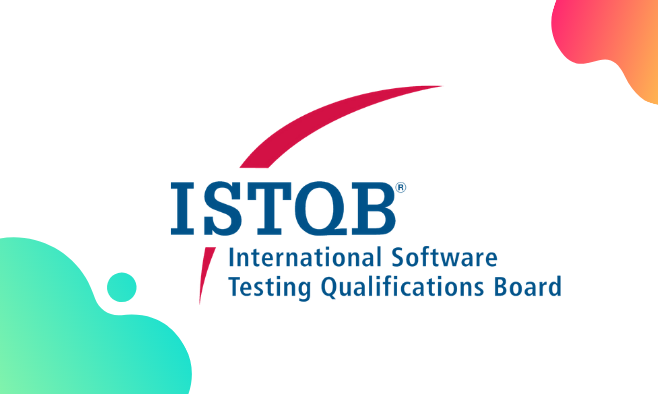ISTQB ® Foundation Level Certification Training

Course Overview
ISTQB® (International Software Testing Qualifications Board) organization provides various certification options in Software Testing domain. As a beginner, individuals can start with the Foundation level exam to become an ISTQB® Certified Tester. Multisoft Virtual Academy offers ISTQB® online training to assist candidates crack the ISTQB® Foundation Level certification.
After the completion of this software testing online training, individuals will have in depth knowledge of the fundamental testing concepts and principles to support test objectives. Also, they learn to design and prioritize tests with the help of recognized techniques along with the analysis of both functional and non-functional specifications at all test levels for systems. This ISTQB® online training provides competency to review small to medium-sized projects.
Candidates, who have achieved the ISTQB® Foundation Level Certificate, can aim for further certifications including, the Agile Tester Extension, ISTQB® Advanced level and ISTQB® Expert level.
What you will get?
On completion of the training, you will be able to:
- Understand and employ a common language for communication with other testers and project stakeholders.
- Follow established testing concepts, process and approaches, and principles to support test objectives.
- Use established techniques to design and prioritize tests; analyze both functional and non-functional specifications at all test levels for systems below a medium level of complexity.
- Carry out tests based on agreed test plans
- Analyze and report test results
- Contribute to reviews of the test basis and test artifacts for systems of small to medium complexity.
- Learn the use of different types of testing tools; in order to participate in the selection and implementation process.
Course Curriculum
Why testing is necessary
- Software system context
- Causes of software defects
- Role of testing in Software development, Maintains and Operations
- Testing and Quality
- How much testing is enough
What is testing
Seven testing principles
Fundamental Test process
- Test Planning and Control
- Test Analysis and Design
- Test Implementation and Execution
- Evaluating Exit Criteria and Reporting
- Test Closure Activities
What is testing
Seven testing principles
Fundamental Test process
- Test Planning and Control
- Test Analysis and Design
- Test Implementation and Execution
- Evaluating Exit Criteria and Reporting
- Test Closure Activities
The Psychology of Testing
Code of Ethics
Software Development Model
- V-model (Sequential Development Model)
- Iterative -incremental Development Models
- Testing within a Life Cycle Model
Test Levels
- Component Testing
- Integration Testing
- System testing
- Acceptance Testing
Test Types
- Testing of Function (Functional Testing)
- Testing of Non — functional Software Characteristics (Non — functional Testing)
- Testing of Software Structure/Architecture (Structural Testing)
- Testing Related to Changes: Re-testing and Regression Testing
Maintains Testing
Static Techniques and the Test Process
Review Process
- Activities of Formal Review
- Roles and Responsibilities
- Types of Review
- Success Factors for Review
The Test Development Process
Categories of Test Design Techniques
Specification-Based or Black-Box Techniques
- Equivalence Partitioning
- Boundary Value Analysis
- Decision Table Testing
- State Transition Testing
- Use Case Testing
Structure-based or White-box Techniques
- Statement Testing and Coverage
- Decision Testing and Coverage
- Other Structure-based Techniques
Experience-based Techniques
Choosing Test Techniques
Test Organization
- Test Organization and Independence
- Tasks of the Test Leader and Tester
Test Planning and Estimation
- Test Planning
- Test Planning Activities
- Entry Criteria
- Exit Criteria
- Test Estimation
- Test Strategy, Test Approach
Test Progress Monitoring and Control
- Test Progress Monitoring
- Test Reporting
- Test Control
Configuration Management
Risk and Testing
- Project Risks
- Product Risks
Incident Management
Types of Test Tools
- Meaning and Purpose of Tool Support for Testing
- Test Tool Classification
- Tool Support for Management of Testing and Tests
- Tool Support for Static Testing
- Tool Support for Test Specification
- Tool Support for Test Execution and Logging
- Tool Support for Performance and Monitoring
- Tool Support for Specific Testing Needs
Effective Use of Tools: Potential Benefits and Risks
- Potential Benefits and Risks of Tool Support for Testing (for all tools)
- Special Considerations for Some Types of Tools
Introducing a Tool into an Organization
Course Description
Software testing certifications enable professionals to demonstrate that they are well-versed in best practices, processes, and approaches to commonly used testing concepts. The ISTQB® (International Software Testing Qualifications Board) qualification scheme offers a 3-level certification scheme for professional testers, starting with Foundation Level and proceeding to Advanced and Expert Level. The ISTQB® Certified Tester scheme has become widely accepted as the world-wide leader in the certification of competences in software testing.
The Foundation Level qualification is well suited to IT professionals who would like to start a career as a software tester, or to testers with basic experience who wish to build upon and solidify their testing knowledge and skills. KnowledgeHut’s training program adopts a practical, hands-on approach, and covers the fundamental topics that every system and software tester should know.
Upon successful completion of the exam, you will be issued with an internationally recognized ISTQB® Foundation Level Certificate.
Features
Instructor-led live sessions
24 Hours of Online Live Instructor-led Classes. Training Schedule: 8 sessions of 3 hours each.
Assignments
Each class will be followed by practical training sessions for a better hands-on experience.
Lifetime Access
Students will get lifetime access to all the course materials where presentations, quizzes, installation guides, and class recordings are available.
24/7 expert support
We provide 24/7 support to all the students, thereby resolving technical queries.
Certification
Once you have completed your final course training and project, you will receive a certificate stating you are a ISTQB Foundation training certified.
Frequently Asked Questions (FAQs):
ISTQB Foundation is the entry-level exam designed for freshers and also for those ambitious professionals who are planning to ladder up the ISTQB certification path. The exam is scheduled to test the candidates’ broad understanding of Software testing, and lay foundations for the advanced level certifications.



